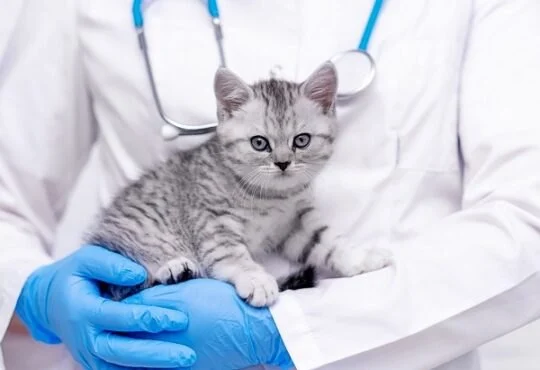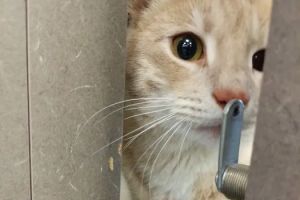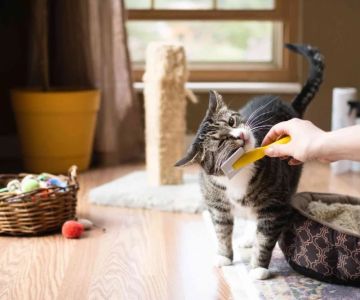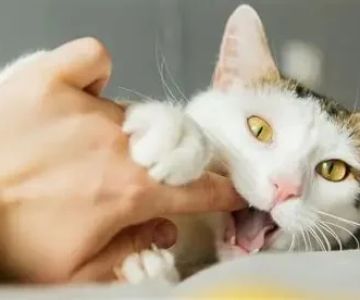
- -Understanding Kitten Neutering and Spaying: Best Age
- -Benefits of Neutering and Spaying Your Kitten
- -The Best Age to Neuter or Spay Your Kitten
- -How Neutering and Spaying Help Your Kitten’s Health
- -The Spaying and Neutering Procedure Explained
Understanding Kitten Neutering and Spaying: Best Age
Neutering and spaying are essential steps in kitten care that help prevent unwanted behaviors and contribute to long-term health. Whether you're a first-time cat owner or a seasoned pet parent, understanding the best time to neuter or spay your kitten, as well as the benefits of these procedures, is crucial for making informed decisions. In this article, we will explore the best age to neuter or spay your kitten, the benefits of these procedures, and what to expect during the process.
Benefits of Neutering and Spaying Your Kitten
Neutering and spaying your kitten provide numerous benefits, both for the kitten and for you as an owner. Here are some key reasons why these procedures are important:
- Prevents Unwanted Litters: One of the most significant benefits of spaying and neutering is the prevention of unwanted pregnancies. Spaying (removal of the ovaries and uterus in females) and neutering (removal of the testes in males) ensure that your kitten cannot contribute to the overpopulation of stray animals.
- Reduces Behavioral Issues: Spaying and neutering often result in calmer and more affectionate kittens. These procedures can reduce aggressive behaviors, territorial marking, and the tendency for males to roam in search of a mate.
- Improves Long-Term Health: Spaying and neutering can contribute to a longer, healthier life for your kitten. Female cats who are spayed before their first heat cycle have a significantly lower risk of developing uterine infections or breast cancer. Male cats who are neutered are less likely to develop prostate issues or testicular cancer.
- Reduces the Risk of Stray Animal Overpopulation: By neutering or spaying your kitten, you play a vital role in reducing the number of homeless animals and the strain on local animal shelters.
The Best Age to Neuter or Spay Your Kitten
Choosing the right age to neuter or spay your kitten is crucial for ensuring that the procedure is as safe and effective as possible. While the ideal age can vary depending on the kitten's health, breed, and lifestyle, veterinarians generally recommend spaying or neutering kittens between the ages of 4 to 6 months.
- Early Spay and Neuter (8 to 16 Weeks): Some veterinarians advocate for early spaying and neutering, often around 8 to 12 weeks, before kittens reach puberty. This is typically done in shelters to prevent unwanted litters. Early spaying and neutering can help avoid some behavioral issues and contribute to the kitten’s overall well-being.
- Traditional Age (4 to 6 Months): The most common recommendation is to wait until your kitten is between 4 and 6 months old. By this age, kittens are mature enough for the procedure, but they are still young enough to recover quickly. This age range also ensures that your kitten is not yet reaching sexual maturity, which helps prevent behavioral issues such as marking and mating.
- Considerations for Older Kittens: If you are considering spaying or neutering an older kitten, it is still possible, though recovery may take longer. It’s important to consult with your veterinarian, especially if the kitten is over 6 months old, to determine the best course of action based on their health.
How Neutering and Spaying Help Your Kitten’s Health
In addition to the behavioral benefits, neutering and spaying can significantly impact your kitten’s health:
- Prevents Health Conditions: Spaying eliminates the risk of ovarian, uterine, and mammary cancers, while neutering reduces the likelihood of testicular cancer and prostate problems.
- Reduces the Risk of Infections: Neutering male cats reduces the risk of infections such as urinary tract infections and abscesses caused by fighting and roaming. Spaying females eliminates the risk of pyometra, a life-threatening uterine infection.
- Less Aggressive Behavior: Neutered and spayed kittens are generally less aggressive and more likely to be affectionate, making them better companions in a family environment.
The Spaying and Neutering Procedure Explained
Both spaying and neutering are simple, safe procedures typically performed under general anesthesia. Here's what to expect during the process:
- Preparation: Before the procedure, your kitten will need to be fasted for several hours to reduce the risk of anesthesia complications. The vet will perform a thorough physical examination to ensure that the kitten is healthy and ready for the procedure.
- The Procedure: Spaying involves removing the ovaries and uterus in females, while neutering involves removing the testes in males. Both procedures are typically done with minimal incisions and are usually completed within 30 minutes to an hour.
- Recovery: After the procedure, your kitten will be monitored while they wake up from anesthesia. Most kittens recover quickly and are able to go home the same day. You may need to keep your kitten indoors for a few days to ensure they don’t irritate the incision site.
- Post-Operative Care: Your vet will provide instructions on how to care for your kitten after the procedure, including monitoring for signs of infection, preventing licking of the incision site, and following up for a check-up if necessary.
Why Choosing the Right Time to Spay or Neuter Is Crucial
Spaying and neutering your kitten at the right time is key to ensuring a smooth recovery and maintaining their long-term health. While early spaying and neutering offer certain advantages, it’s important to consult with your veterinarian to determine the best timing for your kitten’s unique needs. By making informed decisions and following expert advice, you can help your kitten grow into a healthy, well-adjusted adult cat.
If you’re looking for expert advice or high-quality pet products for your kitten, visit Omnia Pet for all your kitten care needs. With the right resources, your kitten will thrive and enjoy a long, happy life!








 Hollywood Feed4.0 (184 reviews)
Hollywood Feed4.0 (184 reviews) Brew Biscuits5.0 (2 reviews)
Brew Biscuits5.0 (2 reviews) All Friends Animal Hospital4.0 (446 reviews)
All Friends Animal Hospital4.0 (446 reviews) Kittylandkittens LLC0.0 (0 reviews)
Kittylandkittens LLC0.0 (0 reviews) Village Animal Clinic4.0 (212 reviews)
Village Animal Clinic4.0 (212 reviews) Rift Lake Aquatics4.0 (165 reviews)
Rift Lake Aquatics4.0 (165 reviews) Understanding Pet Insurance: What Does It Actually Cover?
Understanding Pet Insurance: What Does It Actually Cover? How to Keep Your Kitten's Eyes Clean and Free of Discharge
How to Keep Your Kitten's Eyes Clean and Free of Discharge The Truth About Heartworm Disease: Prevention is Cheaper Than Cure
The Truth About Heartworm Disease: Prevention is Cheaper Than Cure Why Is My Kitten's Belly Button Showing? | Omnia Pet
Why Is My Kitten's Belly Button Showing? | Omnia Pet Why Does My Cat Bite Me Gently? Love Bites Explained
Why Does My Cat Bite Me Gently? Love Bites Explained How to Stop Your Kitten from Getting into Cabinets
How to Stop Your Kitten from Getting into Cabinets